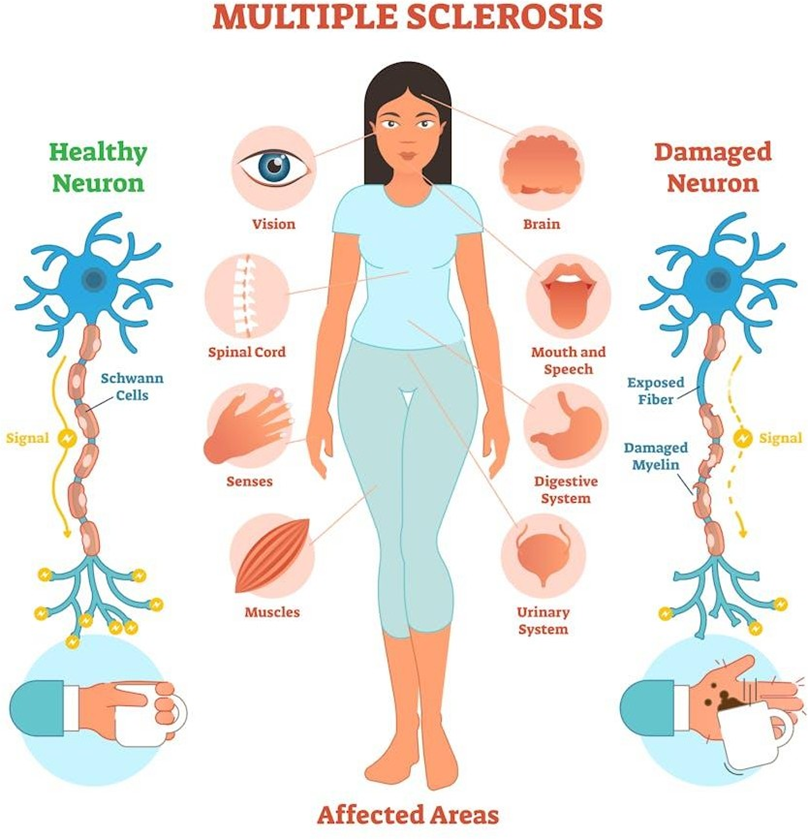A high school teacher who has been diagnosed with epilepsy after having a generalized tonic- clonic seizure tells the nurse, "I cannot teach anymore. It will be too upsetting if I have a seizure at work." How should the nurse respond to specifically address the patient's concern?
“You might benefit from some psychological counseling."
“The Department of Vocational Rehabilitation can help with work retraining."
"Epilepsy usually can be well controlled with medications."
“You will want to contact the Epilepsy Foundation for assistance."
The Correct Answer is C
A. “You might benefit from some psychological counseling." While psychological counseling may be helpful for coping with the emotional impact of epilepsy, it does not directly address the patient's concern about the possibility of having a seizure at work.
B. “The Department of Vocational Rehabilitation can help with work retraining." While
vocational rehabilitation services may be beneficial for individuals with disabilities, it may not directly address the patient's concern about continuing to work as a teacher.
C. "Epilepsy usually can be well controlled with medications." This response addresses the patient's concern by providing reassurance that epilepsy can often be effectively managed with medications. By effectively controlling seizures, the patient may be able to continue working without the fear of having a seizure at work.
D. “You will want to contact the Epilepsy Foundation for assistance." While the Epilepsy Foundation provides valuable resources and support for individuals with epilepsy, this response does not directly address the patient's concern about continuing to work.
Nursing Test Bank
Naxlex Comprehensive Predictor Exams
Related Questions
Correct Answer is C
Explanation
A. The patient's blood pressure (BP) is 144/90 mm Hg: While elevated blood pressure may contribute to the risk of intracerebral hemorrhage, the patient's current BP is not excessively high and may not be the most critical factor in this situation compared to other factors such as anticoagulant use.
B. The patient takes a diuretic because of a history of hypertension: While the patient's history of hypertension and diuretic use are relevant to their overall health status, they may not be the most immediate concern in the context of intracerebral hemorrhage.
C. The patient has atrial fibrillation and takes warfarin (Coumadin): This information is crucial as it indicates that the patient is anticoagulated, which can significantly impact the severity and management of intracerebral hemorrhage. Anticoagulant use increases the risk of bleeding and can worsen outcomes in cases of intracranial hemorrhage.
D. The patient's speech is difficult to understand: While difficulty with speech may indicate neurological impairment, it is not as immediately concerning as the patient's anticoagulant use, which increases the risk of bleeding complications and may require specific interventions such as reversal agents.
Correct Answer is B
Explanation
A. Assess for the presence of chest pain: While chest pain should always be assessed in a comprehensive health history and physical examination, it is not specifically related to multiple sclerosis unless there are concurrent cardiac issues.
B. Inquire about urinary tract problems: Urinary symptoms such as urinary urgency, frequency, hesitancy, or incontinence are common in multiple sclerosis due to neurogenic bladder dysfunction. Therefore, it is essential to inquire about these symptoms to assess the extent of neurological involvement and provide appropriate management.

C. Inspect the skin for rashes or discoloration: While skin manifestations can occur in multiple sclerosis, they are less common and not typically primary concerns during initial assessment. However, if the patient reports skin changes, they should be evaluated accordingly.
D. Ask the patient about any increase in libido: Changes in libido are not typically associated with multiple sclerosis unless they are related to psychological or emotional factors. While sexual dysfunction can occur in MS, it is not the primary focus during the initial assessment unless the patient presents with related concerns.
Whether you are a student looking to ace your exams or a practicing nurse seeking to enhance your expertise , our nursing education contents will empower you with the confidence and competence to make a difference in the lives of patients and become a respected leader in the healthcare field.
Visit Naxlex, invest in your future and unlock endless possibilities with our unparalleled nursing education contents today
Report Wrong Answer on the Current Question
Do you disagree with the answer? If yes, what is your expected answer? Explain.
Kindly be descriptive with the issue you are facing.
